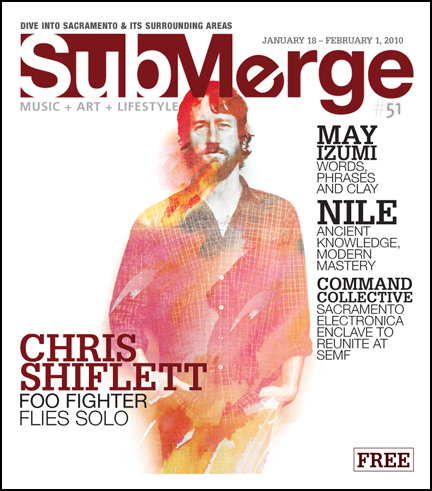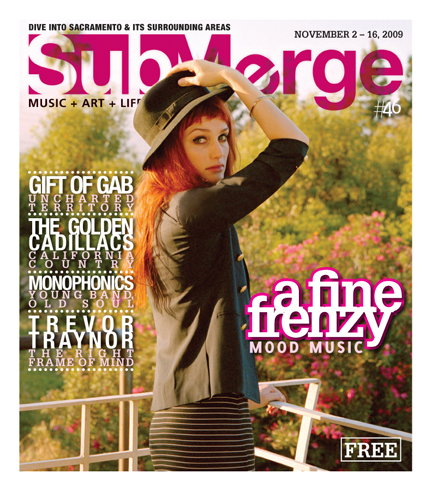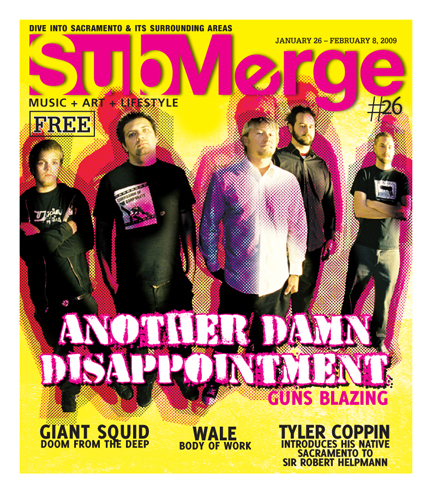Practically every major magazine has been gushing about San Diego’s death-grind gods, Cattle Decapitation. Recently the band released The Anthropocene Extinction and fans are proclaiming it is the new standard for like-minded bands of the genre. And while the band’s tour schedule is completely bonkers this year in support of the new record, the band will come destroy The Boardwalk in Orangevale and all that lie in its path. One listen to “The Prophets of Loss” will make most death metal bands hang up their equipment in utter defeat. What started in 1996 has blossomed into something much larger than fans expected, yet the band is still steadfastly dedicated to writing smart lyrics and demanding song structures that educate rather than cause random acts of violence. Although the band’s message is clearly in favor of saving the environment and stopping the mistreatment of animals, the band delivers with such vitriol and ferocity that fans of even more extreme bands are taking notice. Also on the heavy-handed bill are Australia’s King Parrot, Black Crown Initiate, Dark Sermon, Cataclysmic Assault and Hacked to Bits. All ages are welcome. $15 advance. For more info on the band visit Cattledecapitation.com and for tickets drop by Theboardwalkpresents.com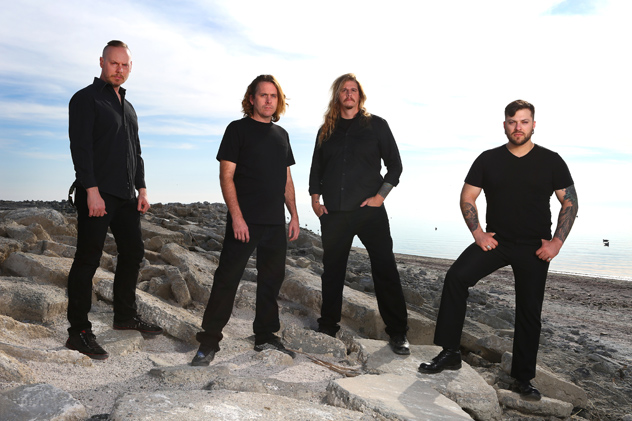
Tag Archives: The Boardwalk
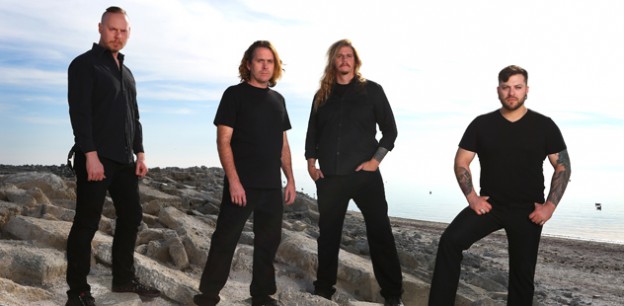
Cattle Decapitation’s North American Extinction Tour Hits The Boardwalk • Sept. 15, 2015
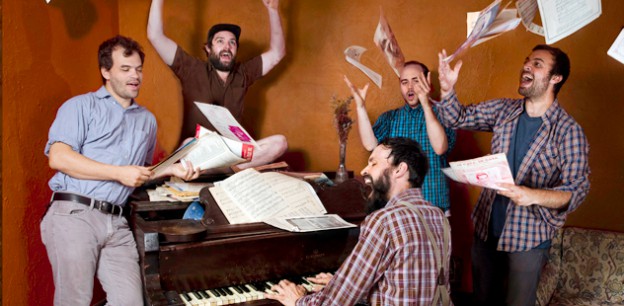
15 Years of mewithoutYou
On a Pale Horse
Philadelphia post-hardcore five-piece mewithoutYou will celebrate its 15th year together this year, continuing to log thousands of miles touring across the United States. Vocalist Aaron Weiss, alongside brother and guitarist, Michael Weiss, started the band in 2001, signing with Tooth and Nail Records later that same year. The band—which also includes drummer Rickie Mazotta, bassist Greg Jehanian and guitarist Brandon Beaver—continues to craft dramatic, sometimes experimental, soundscapes that echo the singer’s trance-like vocal angst. Over the past 15 years, mewithoutYou has toured alongside bands such as Coheed and Cambria, The Blood Brothers and dozens more. The band has also worked with producers like Brad Wood (Sunny Day Real Estate, Smashing Pumpkins) and Dan Smith (Sufjan Stevens) on albums including 2004’s Catch for Us the Foxes and Brother, Sister, released in 2006. The band’s recently released sixth album, Pale Horses, not only challenges mewithoutYou to revisit the band’s natural tendency toward the more theatrical, aggressive musical performance, but also revives the emotional honesty found in past albums. Submerge recently caught up with mewithoutYou vocalist and founding member Aaron Weiss to discuss how he developed his eccentric, spoken-word vocal style, what inspires the band’s performances night after night and mewithoutYou’s religious-based labels.
Where do you find lyrical inspiration?
I can point to certain authors where I take a line either word-for-word from Rumi or, more recently with this new album, James Joyce more than anyone else. But, there’s also whatever I’m experiencing, whatever I’m fed by my surroundings and by media, or billboards, or my cats, or my relationships. In this case, my wife and being married, and having a whole new family; those things, of course, shape what I’m writing even though I don’t necessarily consciously incorporate those things.
Screaming and shouting night after night must take a toll; do you have any vocal remedies you turn to in a pinch while on tour?
No. I have not had any success with any remedies. Only time. Only rest. That’s the only thing that’s worked for me: keeping quiet. If I get real bad, I’ll make a little sign, or if anybody comes up to me I just point to my mouth, or point to my throat and give a thumbs down, and hopefully they’ll get the point. For me, of course, even better than that, is the preventative maintenance. For one thing, staying hydrated and another is proper vocal technique. I’ve learned a few techniques and ways to direct my voice and use my body that can prevent that kind of fatigue. If I just go shouting without remembering the correct way to do it, I could lose my voice in a single song.
How did you develop your spoken-word vocal style?
If I remember right, it mostly came from what a bad singer I was. I was in a musical in high school. I got a good role, but I really couldn’t sing the song. So, they literally made me speak the song in rhythm with the music and when I listen back to that, I have a recording of it, I think, “That’s pretty similar to what I do now.” It’s probably where I got the idea to do that. And, just hearing other artists, or vocalists, who have done likewise like Sean McCabe from Ink and Dagger, or Ian MacKaye from Fugazi, or Henry Rollins.
During mewithoutYou’s live performances, you often wrap flowers around mic stands, what’s up with that?
I used to do it more often, but the reason was just to make something pretty and to make it smell nice, and make it look nice, or to have something new to interact with. We play shows night after night, and we try to mix up the set list or do something different each time. But, in some respects, it’s very homogenous. So, anything that we can do to make every night something special and unique, and the flowers are just one more version of that. It’s just one more element of the show that could be memorable or enjoyable for people.
MewithoutYou’s lyrical content contains Jewish, Muslim and Christian imagery. Do you use music and poetry to explore spirituality?
Sure, that’s such a big part of who I am. There’s no way I could do anything where I could do anything where I could seriously try to explore or express meaning and significance, and identity and trust and reality, without drawing on all those sources. They’re just kind of part of my DNA. At the same, I don’t feel a compulsion to force that in or make anyone else believe anything about religion. There’s no way for me to write with any real intensity while bracketing all that, so it’s going to be there and if that turns people off who aren’t religious, or who are anti-religious, well that’s OK. But, at the same time, religion and spiritual context can be used in such harmful ways that I’m reluctant to endorse any of them.
When bands are labeled under a religious light, do you feel they trudge through stigmas with
an audience?
It’s hard to even pin down what Christianity means; multiply that by five. When you have five members of a band that someone’s trying to shoehorn into this one label, it just doesn’t make any sense. To me, it’s an incoherent concept. If someone were to say, “Oh, those guys are a Christian band, or they’re a Muslim band, or they’re a religious band,” none of those labels stick because not everyone in the band can be put in any one of those labels.
After all these years, is there a favorite album, or song to perform that still ignites deep emotions?
When I think about performing and what brings out different emotions, that really changes from one night to another, and it surprises me. There’s a song that might not mean a thing to me one night, and then the next night we play it and it really hits me in a new way. When we play, I try to really dial into the content. What am I saying to people right now? What message am I conveying and where is my attention right now? Am I locked with this moment and this particular dynamic of who’s in the room with me, or am I just rehashing what I did yesterday? To me, it’s always a constant struggle when I’m on stage performing to try to let these songs still be new and still be meaningful.
See mewithoutYou live at The Boardwalk in Orangevale on June 24, 2015, with Foxing and Lithuania. This all-ages show starts at 7 p.m. Tickets are $15 and can be purchased through Theboardwalkpresents.com.
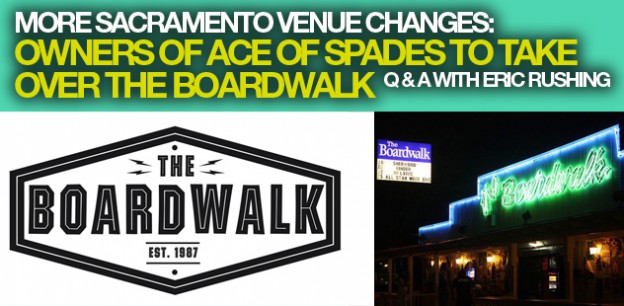
More Sacramento Venue Changes: Owners of Ace of Spades To Take Over The Boardwalk // Q & A with Eric Rushing
In a year full of ups and downs for Sacramento music venues, one iconic local club is about to get some proud new owners. Submerge has received word that Eric Rushing and Bret Bair (of the popular downtown venues Ace of Spades and Goldfield) are set to take over The Boardwalk, a legendary all-ages music club on Greenback Lane in Orangevale that has hosted some of the biggest names in the industry as well as countless locals since it opened in 1987. Local scene aficionados will know that Rushing has a long history with The Boardwalk. He steadily promoted shows there for 10 years (from 2001 to 2011) before opening Ace of Spades and later Assembly, which recently closed. Rushing granted us a rare interview to talk about his natural progression to taking over The Boardwalk, the future of the venue and what sort of local bands he’s looking for. Check out their new website for show listings and more information: Theboardwalkpresents.com
We’ve known ever since you guys decided to vacate Assembly that you’d be looking for another smaller size venue to complement the larger Ace of Spades. So our first question is simple: Why the Boardwalk?
It was a no-brainer for me because of my history there; however, we were really hoping to do something downtown to complement Ace and fill the void of Assembly going away. Even though The Boardwalk is located 20 to 30 minutes outside of the downtown area I still feel it’s in a great suburban area surrounded by a ton of high schools and endless potential. I’m actually really excited to do this again and already have some great shows in place for 2015.
Do you think it will be a challenge to sort of bring back the “glory days” when The Boardwalk was like the place for live music? Lately at least, it seems like a lot of Sacramento’s entertainment options have been focused on the grid. What does it take to get people to shows all the way out at The Boardwalk?
Definitely have our work cut out for us but we have a ton of great ideas to really put this place back on the map. There are a lot more people living in the grid these days, but a majority of the people are still coming from the ‘burbs anyway, so I’m not so worried about people not driving from downtown. We will make sure to put some shows in there that will get them out of the grid!
Same deal as usual as far as the live music program goes? A mix of national acts and local acts, right?
Correct. Same format I have used for years and same format we use at Ace.
At one point when we were last talking, you mentioned if this deal went through, you’d be possibly doing some renovations to the place. What sort of changes will people be able to notice at The Boardwalk right away, as well as in the distant future?
I can’t give away our secrets just yet, but it’s going to have a really cool vibe!
What will it take for local bands reading this to get a gig at The Boardwalk? What are you looking for in performers as far as sound, promotion, etc.?
Talented bands that actually get a crowd out to see them. It’s pretty simple, you just need to do the work and create a following. We are already booking shows for next year. Email us at Boardwalkpresents@gmail.com.
There has been a lot of commotion lately in the local scene with all of the venue closures. In your opinion, what does the state of Sacramento’s music scene look like to you right now?
There definitely needs to be more attention on the local music scene and the venues local bands can play. We’ll be giving a lot of them their shot here at The Boardwalk. Sacramento has always had a great scene. It just needs to be rebuilt, which we will be working on!
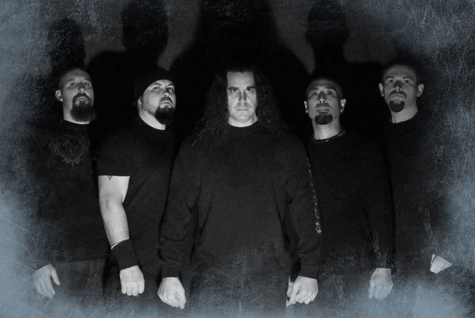
Metal World Takeover
Deadlands re-releases debut album Evilution to an international audience of headbangers
Local thrash metal band Deadlands is barely more than two years old, but this isn’t a group of rookies. Members Brian O’Connor (vocals), Michael Garner (lead guitar), Kevin Rohr (guitar), Steve “Dedbass” Northam (bass) and Danny Sabian (drums) have earned their metal stripes in a variety of notable bands including Vicious Rumors, Spectre, The Council and HateFX. In 2010, they joined forces to form Deadlands and soon after released their first album Evilution, which has now been released worldwide by German metal label Massacre.
Re-released Feb. 22, 2013, Evilution received something of a sonic facelift for its Massacre debut. The band turned to Juan Urteaga, who has produced Machine Head, Testament and Death Angel in the past, to give the album the punch it needed for an international audience.
“We had him add more of a lower end,” Northam said in a recent phone interview with Submerge. “It’s got a much bigger sound to it.”
Deadlands also added a cover of Dio’s “The Last in Line” to round out the re-release’s track listing.
Evilution has a very modern metal sound, but it’s also something of a throwback. Contemporary influences such as Killswitch Engage and Lamb of God mingle with old school nods to King Diamond, Mercyful Fate and classic thrash bands such as Testament and Exodus.
The link between the new and the old can be heard most clearly in O’Connor’s vocals. Though he’s not afraid to release a good growl when the situation calls for it, he’s equally adept and letting out a classic metal vibrato. What you won’t hear, however, is the tried and true Cookie Monster-style vocals that have become pervasive in modern metal bands. Northam said that this was an intentional move on the band’s part.
“I think that’s something we all wanted, because a lot of us, other than Brian, have been in the Cookie Monster bands, and I think we all wanted to try something different,” he said. “We did think it would separate us from everyone else, because the scene has become filled with growling.”
More nods to the days when metal was metal come in the form of Deadlands’ penchant for solos. While Garner and Rohr both prove prodigious in their fret board mastery, the band also reached out to a few metal greats to flex their shredding muscles. “Final Solution,” a track from Evilution features a bevy of guest spots from Mercyful Fate guitarists Hank Shermann, Michael Denner and Mike Wead. King Diamond’s Andy LaRocque and Serpent and Seraph/Dragonlord’s Claudius Creamer also provide solos for the track. Elsewhere, Glen Alvelais (Testament and others) and Steve Smyth (Nevermore) heat up as guests on “Path We’ve Chosen.”
“We laid down all the rhythms for the album, and Michael [Garner] laid in his leads later. He got to that song [“Final Solution”], and he realized that he had seven solo slots,” Northam said. “He’s a huge King Diamond and Merciful Fate fan. He just started hitting guys up. He started with Hank Shermann, that was the first guy he got in touch with through email. He liked the song and said he was down… They all liked the song. It was cool. We were honored that they wanted to be on the album.”
Deadlands is currently working on new material for a forthcoming album and gearing up for the Evilution CD release party at The Boardwalk on March 16, 2013. Northam gave us some insight into the band’s writing processes and also explained why Deadlands is not simply shredding for shredding’s sake in the following interview.
How did you get hooked up with Massacre?
Our singer Brian O’Connor, he toured the world with Vicious Rumors. He’s well known overseas. He was familiar with Massacre records, and he flew the album by them. They really liked it and they wanted to pick up that album, so we just decided we’d add one more song and give it a better mix since it was going worldwide.
I was listening to Evilution, and I really dug the sound. A lot of the lyrics have a political or socially conscious bent to it. Was there a theme behind the album?
Yeah, the theme was generally about the apocalypse and the decline of the world. It’s from the starting place where politicians get too greedy and kind of suck from the world, and then the apocalypse and life after that. The album has the ongoing theme of that. The lyrics are something we all sort of collaborate on.
How does the collaboration work out lyrically?
Lyrically, most of it’s Brian. I’m the other main lyricist. Occasionally a guy will throw in an idea for a hook or something…
I predominately wrote the lyrics to “Asphyxiate the Masses” and “Shed My Skin,” but Brian was there for the whole process. He took out parts of mine that he wasn’t sure of and added his stuff. He was definitely involved with the process.
What kind of place were you coming from with “Shed My Skin?”
“Shed My Skin” is about drug addiction. It’s something I’ve dealt with. My father was a heroin addict. There were several heroin addicts in my family. My best friend grew up around a lot of meth heads. It’s just something that I saw a lot growing up. “I was gonna kick tomorrow…” was about quitting, but the people never get around to it, and they end up dying, which I saw a lot growing up. It’s about the decline, being an innocent person and you slowly partake in drugs and watching it eat you up until you die. You see the people want a way out, but a lot of times they don’t find their way out.
Does it make it easier to write lyrics having a thematic focal point, or does the theme just come out after you’ve started writing?
With this album, ever since it started coming into play, there was that apocalypse thing. Fortunately, that’s something that ties into so much. Any time you’re on hard times—like, say, there was an apocalypse, or right before an apocalypse—people start using drugs. Any bad situation, drugs come into play. It’s fitting for so many topics, it really made it easy to write for, thematically.
You have a lot of guest soloists on “Final Solution.” Was it tough to find a spot for all of them on the song?
No, there was a little bit of tweaking, because we didn’t figure everyone would agree to be on it! We ended up extending it a little bit, because we wanted to get all those great guitarists in there.
When you play that song live, does it put a little extra pressure on your guitarist?
Oh yeah, he’s good though. He learned all the other guys’ solos. I feel sorry for him, but he got it.
You’ve played in other bands before this, how does your experience with Deadlands compare?
Personally, it’s been the best experience I’ve had as a band. I’ve been in bands that I’ve enjoyed, but I’ve never been in a band where everyone is such a pro player. All of these guys are so talented.
You mentioned that you were working on new music, could you talk about that a little bit?
We’re mainly putting together riffs at the moment, working that out. Once we have what we feel is solid, we’ll have Brian come in and dictate what parts he’d like to sing on and rework the songs at that point.
The thrash metal sound is so technical. Getting together on riffs and stuff, is that something you have to drill constantly to get it to a point where you like it?
Yeah, it takes a little bit of time. I’ve been in the technical death metal bands before, you can just throw those riffs back to back. It’s a lot harder what we do, because we write songs. You have to think about the singer too. Even though we get crazy technically on some parts, we realize songwriting is the most important part, and we realize we have to bring it back to that. That’s actually harder than the technical riffs.
So for you guys, it’s not just shredding for shredding’s sake.
Exactly. That was the most important thing about getting the members. We wanted guys who could play their instruments and shred, but we all realized and seen before that a lot of times guys like that aren’t such good writers. We wanted to make sure we had a band of writers.
You have the CD release show at The Boardwalk coming up. What do you guys have coming up after that?
After that, we don’t have any shows lined up. That’s when we’re really going to start hitting the writing harder. Depending on the record sales, we are trying to work out some tour overseas and in the United States, but that’s all up in the air right now.
Does it make things a little more difficult working with a label in Germany?
Not really with the way computers work. That’s just how everyone communicates. Metal is just bigger across Europe than it is in the States. It’s actually better because we’re getting more pushed over there. We’re in the magazines on the shelves over there and stuff like that. The big time metal magazines are reviewing our album. We get the interviews over there, where we don’t quite get as much love in the United States, but things could change with the album release.
It must be a surreal feeling to know that thousands of miles away that people are reading about you.
It is. it’s really cool.
But then at home you’re kind of low key.
We’ve been getting the best of both worlds.
Our shows have been going really well around here, and the support we get over there is incredible.
See Deadlands headline their CD release show at The Boardwalk in Orangevale on March 16, 2013. War NRV, Force of Habit, Steel Savior and Dire Peril will play the support slots. Tickets are $12 in advance and $15 at the door. You can purchase tickets in advance and learn more about Deadlands on their website Deadlandsmusic.com.
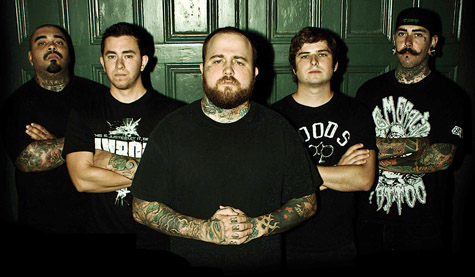
Your Eyes May Deceive You
Havenside fights to project the right kind of image with its new album Nemesis
With a vision of creating a musical outfit, Havenside founder and vocalist Brandon Wells began the process of recruiting a group of musicians who shared the same desire of performing in a gritty hardcore metal band. In 2006, Havenside was born and began cutting its teeth with a full lineup intact. When asked about the inspiration for the name of the group, Wells mentioned, “I wanted a name that represented where the band was from. Before the band started, I was driving around one day and drove past Havenside Street in the Pocket area. I always liked the name and it stuck with me.”
Six years later the band remains in tact with a few lineup changes over the past few years. One thing crucial to Wells’ personal ethic is to let the music do the talking.
With two records already under its belt, the group has recently put out a third album, Nemesis. Released on prominent Sacramento-based hardcore metal label Westcoast Worldwide Records, the band drew inspiration by digging deep to describe pain, hatred and betrayal experienced in their lives. The rawness of Nemesis certainly speaks for itself. Songs such as “Dreamkiller” and “Vengeance” paint a graphic picture of how life can deal you a wicked hand and send a message that you must fight back at times in order to get what you want in this world. Guitarists Casey Mann and Nik Santos pump heavy down-tuned guitar riffs into the listeners’ dome, leaving your head banging on “Snake” and “Lowlife” while Wells’ mighty, aggressive vocals remain resonating in your mind.
Tour experience combined with sharing the stage with bands like Evergreen Terrace and Earth Crisis has most likely humbled the group, keeping its members focused on their goal of playing heavy music without compromising an ounce of intensity and aggression. Submerge sat down with Wells to discuss Havenside’s new album, trends in the hardcore music scene and finding a home at their record label.
What do you see as being some of the positive or negative trends in hardcore music today?
I’ve seen a lot of young kids thinking of hardcore as a trend. But in few places kids are getting back to the roots. Not worrying about the “image” as much as the music and brotherhood that is supposed to go with hardcore. Trends come and pass but it’s the true passion that some will stick with and always keep hardcore in their hearts. We hope that really stays around.
Where did you record the new album? Did the band try any new tricks in the studio this time around?
We recorded Nemesis at Castle Ultimate Studios in Oakland with Zach Ohren. On this record we went for a deeper intense sound than the last record. With the rhythm guitar, we ran a [Peavey] 5150 II head through a Marshall cab and with the lead guitar we ran a 5150 II through a vintage 4-by-12 Fender cab. We tried different things with the drums as far as where the microphones were positioned. We ended up using Ohren’s crash ride because it just sounded better on the recordings than Jaramia’s [Bond]. On the bass we decided to run through a DI and mic’d up an 8-by-10 Ampeg as well trying a mix between live and digital sound for the low tones. On vocals I went for a deeper yelling vocal style, contrary to the last album, to express a more angry and powerful sound than before.
Have you found your permanent home at Westcoast Worldwide?
Yes. We love it here. It’s a family. We all work together. You look out for each other; it’s what the hardcore music scene is about. Mikey Hood [label founder] pushes us to be a better band every day. He believed in us when no one did. We can’t thank him enough.
How has it been working with a veteran like Hood?
Great. He has been a great friend as well. He has been there for us through thick and thin. Shown us the ropes. He has been through it all on the road. So having a guy like Mikey Hood to keep us on target is amazing. We owe much respect to him and Westcoast Worldwide.
Do you have upcoming tour plans?
As of right now, no. We are taking care of some things at home that need attention at the moment. But hope to get back out on the road soon.
What is the most exciting show you’ve played and why?
I would have to say Conducting from the Grave’s music video show last year. Some kids were crowd surfing and bouncing on their heads. It was a wall of intensity.
What is the craziest thing you’ve witnessed at a show?
Our friend Mike jumped off the stage at the Conducting from the Grave show last year and somehow broke his ankle. It was so bad that the bone was sticking out!
What are the advantages/disadvantages of being a Sacramento based hardcore band?
The advantage is having the privilege to be involved in the Sacramento music scene. Sacramento has always been great to us. We love it here. I believe anywhere you’re from there are disadvantages of being in a hardcore band, you just have to work hard, look past all the bullshit, be yourself and be respectful to the fact we are all here doing what we love. Music has a power like no other. Support each other. I love hardcore music. It has been there for me on my darkest days and will always be there for me no matter what.
What song on Nemesis do you personally connect with the most? Why?
I’d have to say “Anguish.” There was a time in my life when everything was falling apart for me. I was drinking a lot, didn’t care how I treated others, made some wrong choices back then that I regret. Every time I hear the song it tells me that’s behind me. That song means a lot to me.
What are some of the biggest changes you’ve seen in the hardcore scene since Havenside began?
Well fewer kids are going to shows these days. Shows prices have become more expensive. I wish we had more $5 shows again. Venues have shut down left and right. So many bands are getting together and then breaking up six months down the road. There is a new band starting up every day in Sacramento that sounds exactly the same as the next band. All I have to say is do it for the love of music not to get popular at your school, or to look cool in front of your girlfriend. Find something else to do with your life if that’s the case. It’s making our scene look bad. Really take the time to make things work as a band first if this is what you want to do before playing shows.
Outside of music, what are your hobbies and influences?
I do Web design for bands/companies called BW Designs. I also do tattooing here and there. My mom is my biggest influence. I wouldn’t be the person I am today if it wasn’t for her.
What are some of the biggest misconceptions or stereotypes of the style of music you play?
Hardcore kids wear camouflage shorts and people thinking hardcore music is all about starting fights at shows, being the tough guy and that the music is always negative.
Havenside’s Nemesis CD release show will take place at The Boardwalk in Orangevale on April 27, 2012. Also performing will be Hoods, Hammerfist, Maya Over Eyes and Your Own Destroyer. Tickets are $10 in advance and doors open at 7 p.m. If you’d like to purchase a digital copy of Nemesis, go to http://vibedeck.com/havenside/nemesis.
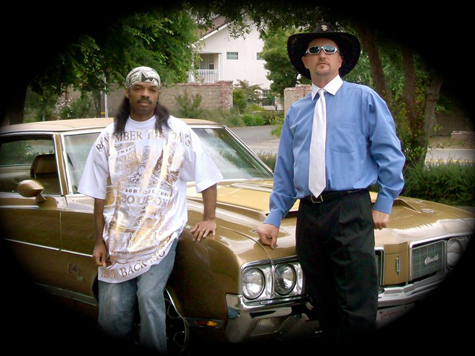
BLUES & HIP-HOP REVIEW ON JAN. 7, 2012 @ The Boardwalk
This may be the weirdest billing of bands ever, but on Saturday, Jan. 7, 2012 at The Boardwalk (9426 Greenback Lane in Orangevale) there is sure to be some fun had at the “Backyard Blues and Hip-hop Review,” put on by James Allen Productions. In one night, and for only $10 in advance or $15 at the door, you’ll experience a mash-up of blues music from performers like Fillmore Slim, Forrest Barnes, Sunny Blue Band and more as well as live hip-hop from acts like Cowboy and A Thug (pictured), Swiss Thebigcheez, Juana Blaze and others. There will be plenty of hickory smoked barbecue and proceeds from ticket sales go to the Sounds of Heaven.
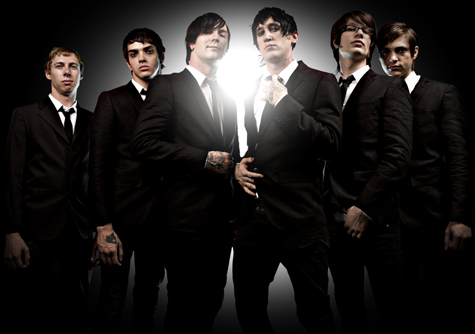
Body of Work
Alesana Authors Their Third Album in Four Years
Stimulating body and mind, Alesana creates a rare breed of heavy music that’s equal parts brain and brawn. Folding literary references, both ancient and modern, into their lyrics, the band sounds sort of like a book on tape set to three harmonized guitars and dueling clean/growled vocals.
Formed just over five years ago by two North Carolinians by way of Baltimore, Md.—guitarist/vocalist Shawn Milke and guitarist Patrick Thompson—Alesana already has quite a hefty musical output to their credit. Released Jan. 26, 2010 The Emptiness is already the band’s third album. Though they’ve been quick on the draw since releasing their first LP, On Frail Wings of Vanity and Wax, in 2006, Milke says he took his time getting Alesana off the ground.
“We moved down to North Carolina, because the music scene is way better down there than in Baltimore, especially for local music,” Milke says. “We moved down there and took our time. It took a really long time to get started, because we wanted to start off right. We were a full band for three-and-a-half months before we even played our first show.”
With downloading becoming the most prevalent way consumers buy music, Alesana’s almost album-a-year pace seems to buck the industry trend. However, Milke says that the band’s approach has worked quite well for them. While they may not have cracked the lofty Gold record mark, their sheer volume of material has earned them a measure of security in an unstable industry.
“In a climate, in an industry, where selling 100,000 records is such a big deal for longevity, we might not have sold 100,000 of one record yet, but we’ve put out enough records in a short time that we’ve sold well over 100,000 total,” Milke says. “Instead of selling a huge chunk of the same record, and a lot of kids getting bored and not even wanting to get your second record because they’re so tired of the old stuff, we constantly keep it fresh.”
To produce that much material in such a short time, it takes a strong creative team. Alesana has Milke and Thompson at the helm, sharing the songwriting duties. The two played together in a pop-punk band in Baltimore before they decided that they wanted to take their music in a heavier direction, prompting a change of scenery. Milke says that he and Thompson emulate one of their biggest influences, The Beatles, in terms of work ethic.
“We look to The Beatles as our inspiration,” Milke says. “Back in their day, they would put out four or five records a year. We’re one of those bands that doesn’t believe in hiding behind a record. Once we have the material ready to go, we bug the label that we want to put it out. We want to do another record.”
Alesana may be the hardest working band in metalcore, and they’re proving that on the road this late winter through early spring with a nationwide tour supporting The Emptiness. The tour will bring Alesana and their theatric live show to the Sacramento area with two dates at The Boardwalk in Orangevale on March 5 and 6. Milke says you should expect plenty of choreography.
The Emptiness comes with a 13-page story. Did the idea for the story come first, or vice-versa?
It’s weird. The idea to want to do a story came to me first. We’ve always based our records on short stories—other literature. Our first record is , our second record is famous fairy tales, so this time around, I knew I wanted to create my own story—or our own story. The idea to write a story came first, but the story and the lyrics and the music all came together in the same year. The record started being born in January of last year, and we finally finished recording it in August. It was over an eight-month period that everything was created.
Is that longer than usual for you guys?
It’s usually par for the course, but this time, a lot more time was spent within those eight months getting ready. It wasn’t like, “Oh we’ve got plenty of time, we can just wait.” We spent the better part of those eight months writing this record.
Why do you think that was? Did having your own story in mind affect your preparation?
In this industry right now, we’re lucky to be on our third record. A lot of bands have a one or two record lifespan, and then no one cares about them any more. Putting out a third record was a special feat for us to accomplish, so we wanted to make sure that we showed as much effort as we could, so we weren’t just a band trying to finish a record deal and throw the last record out there for legal reasons. We wanted people to know that this is our third record, but it’s also the one we’re most proud of and spent the most time on.
You mentioned that your previous albums had allusions to literature. The last song on The Emptiness is called “Annabel,” and since you’re Baltimore guys, is that a nod to Edgar Allen Poe?
Yeah, you’re absolutely right. When we decided we were going to write our short story, we tried to figure out what genre we wanted it to be in. I’m a huge fan of old romantic stories and horror stories from all generations. We found Edgar Allen Poe was the best for combining those two. He was really good at writing really creepy love poetry. “Annabel Lee” was always my favorite of his, because it was so eerie how he could write about a dead person and make it sound so beautiful. That’s why we named the female lead character in our story Annabel, to give thanks to Poe for inspiring our story.
Poe’s poems, and even his prose, have such great rhythm to them. Did his influence seep into the music as well?
They have a musical feel to read them. We’ve always been inspired by, like I said, Greek mythology and the Brothers Grimm and a few contemporary screenwriters and such. We just thought this time we’d go with one of the classics—one of the reasons that this type of prose exists to begin with”¦ We wanted to allude to Poe so people would be able to grab at that, but not make it completely obvious.
Was it more challenging to base something off of a story you’d written yourselves as opposed to an existing literary work?
I think it was definitely more challenging to write to other people’s work, because when it’s your own story, you can manipulate it any way you want. When you get to the bridge of the eighth chapter, and you’re like, “Wow, the story’s just not working for this part of the song,” you can sit there and say, “Well, let’s change the plot point a little bit.” If the story’s already written, you don’t really take those liberties”¦
On the other side of the coin, with the stories we based our past albums on, we’d always twist them a little bit. For example, the fairytale by the Brothers Grimm, “Hansel and Gretel,” we have this song called, “Sweetheart, You’re Sadly Mistaken.” What we did was change the ending; what if Hansel and Gretel ended with them escaping and killing the witch instead? We changed it up in our own weird way. We’ve taken some liberties in the past.
In your bio, you’re quoted as saying that The Emptiness is “an adventure like a Broadway play.” Do you take a lot of inspiration from musicals and/or rock operas?
I’m hugely inspired by rock operas and musicals. I have “Forget Regret” tattooed on my left hand, which is a line from Rent, which is one of the most inspiring pieces of anything ever put together in my lifetime. The Emptiness is something that we dream of taking to another level. I have dreams of making an independent film out of it, but time will tell if we can gain enough popularity with the story to develop any interest.
Were you a theater major in college or into theater in high school?
It’s interesting, because I was really gifted at sports all through high school. I played baseball and basketball. I even had a partial scholarship to Arizona State to play baseball, so even though I was super interested in music and theater and stuff like that, you know how high school cliques go. I couldn’t play baseball and be the guy in theater as well. So even though I had a strong interest in it and as much as I studied it and went to Broadway plays and local plays—and film is my life. I watch so many movies, it’s disgusting. That’s always been my passion and my inspiration, and once I hit a certain age, I realized that—once I wasn’t a dumb kid anymore. That’s when I started playing music.
So you started pursuing music pretty recently.
Yeah, I didn’t really start pursuing guitar full time until I was 17, in my senior year of high school. I was like, “You know what, this is my last year of high school, I might as well even try to learn the guitar.” From there, it kind of took off. I realized that came more naturally than anything.
Were you writing songs right away?
Yeah. My dad always teases me about that. He wishes I’d started earlier, because I’m pretty much self-taught everything: guitar, drums and piano—and vocals too. I never had any formal training in any of those areas, and it all came to me, like I was supposed to do it. I have a lot of really old material that I recorded on my own, and I’ll listen to it every once in a while just to laugh at it. I’ve been writing songs for a pretty long time now.
A lot of bands in your generation, such as yourselves, Thrice and Coheed and Cambria, seem to be putting out concept albums. Why do you think it has become so prevalent, especially in the genre of music you’re a part of?
I think when bands start to get lumped in with each other—and no band likes that. No band likes hearing, “Oh, you’re just like this band.” I think—even if it’s not a concept—but just creating a record that’s for a purpose, even in your own mind. Like, this isn’t just a collection of 10 or 11 songs, but you wrote these 10 or 11 songs with this reason in mind, it’s like you’re separating yourself from the crowd. By putting out a story or a concept record ourselves, people can go, “Oh, they’re not exactly like these other six bands, because they actually took the time to write a story and put together an entire Digipak with two booklets and artwork and crazy stuff going on.” Especially in such a heavily downloaded age of music, to offer extra things with a record definitely makes
a difference.
Alesana will play The Boardwalk in Orangevale on March 5 and 6, 2010.
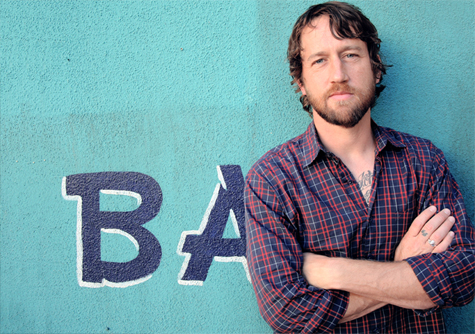
On to the Next
Chris Shiflett puts his time off from Foo Fighters to Good Use
Over the past decade, the Foo Fighters have risen to become one of the most prominent bands in rock ‘n’ roll, and guitarist Chris Shiflett has been a big part of that. Becoming a full-fledged Foo right before the end of the last millennium, Shiflett already had quite a resume as guitarist for No Use for a Name and also a member of Fat Mike’s punk rock cover band Me First and the Gimme Gimmes. In September 2008, Foo frontman Dave Grohl announced that his group would be taking an extended hiatus, a statement that has held true despite the release of a greatest hits comp at the end of 2009. The announcement didn’t seem to rattle Shiflett all that much. He just kept doing what he’s done the better part of his life: create music.
When Submerge spoke with Shiflett, he was just wrapping up recording for a new record he hopes to be finished tracking shortly. In the past, Shiflett has spent his time away from the Foo Fighters fronting another rock band called Jackson United, but the music he’s working on now will appear on a solo effort—well, sort of.
“I’m working on kind of a solo record, though it’s kind of silly to call it a solo record, because I’ve got a lot of other people playing on it,” Shiflett says. “It’s a solo record with a lot of my friends.”
Shiflett has no shortage of talented friends. One such friend is his old NUFAN cohort Tony Sly, with whom Shiflett will be touring the Western United States in February. Shiflett says that a show the two played together last year in Santa Barbara served as an impetus for the tour.
“We both have kids and wives, and we don’t really get to see each other so much anymore,” Shiflett says of reuniting with Sly on stage. “It was so much fun. We did a song together, and afterwards, we were hanging out, and we were like, ‘We should do a tour.’ So we started talking about it, and it just kind of came together. He’s actually got an album coming out in a week or so, I think. He’ll have product; I won’t.”
Shiflett may not have anything to hawk at his upcoming shows, but he will be trying out some of his new material. A departure from what his fans may expect, Shiflett’s solo record will feature “roots-y leanings.”
“It’s got more acoustic bass and keyboards and pedal steel and more instrumentation on it,” he explains. “It’s definitely not as rock ‘n’ roll as the Jackson United stuff, but it’s still me, and it’s still my songs, so I’m sure there’s a common thread there.”
It may sound like a serious downshift—both in sound and scope—from what Shiflett is used to, and it is. But it’s a challenge he seems pretty excited about. He says “it’s a trip” to go out on the road, on his own, to play a bunch of songs that many people may not have heard, but he acknowledges there’s also a certain amount of freedom involved as well.
“I like going out and doing the acoustic shows, because it’s so easy,” Shiflett says. “You just throw your acoustic guitar in your car, and there’s no corralling a bunch of people. It’s just fun. You kind of sink or swim on your own strengths and weaknesses. There’s nowhere to hide, which makes it pretty exciting to do that.”
In addition to playing new material, Shiflett says he will also throw some Jackson United songs and a few covers into the mix. And don’t be surprised if Shiflett and Sly play a song or two together.
How has it been playing music with Tony again? Do you revisit old stuff, or are you looking to do something new together?
It’s funny, because the song we ended up playing together, I just kind of surprised him. I said, “Hey, do you want to do that ‘Moonshiner’ song?” He used to bring an acoustic guitar on tour, so when we’d be on a long drive in a van, he’d play guitar and sing songs. It was a song that he used to sing. It’s an Uncle Tupelo version of some old standard. So I was like, “Do you want to sing that song with me?” and he came up and did it, so that took me right back to being in a van in the middle of nowhere with those guys. Me and Tony have known each other for a long time now, and he’s one of those guys that even if I don’t see him for a couple years, it just takes a few minutes”¦
You’re like fast friends all over again”¦
Yeah, he’s just a good, old friend of mine. We have a lot of love for each other.
Will he make a guest appearance on your own album?
You know that’s not a bad idea [laughs]. We haven’t talked about it, but maybe I’ll corral him into the studio when I have him down here.
You’ve played in bands like No Use for a Name and Foo Fighters, which are both on the louder side of rock music. Is the stuff you’re doing now something you’ve always had a penchant for?
Without a doubt. Of course I love loud rock ‘n’ roll music. That will always be my first love, but ever since I was a little kid, I was listening to Elvis and Johnny Cash and a little later on, I dug back into that older stuff—Willie Nelson and things like that. It’s always something I’ve been into and have had an appreciation for. It’s nice to take a break from screaming loud music and do something a little mellower. That’s the fun thing about doing these acoustic shows. I do some of the Jackson United songs, and they’re sort of a little closer to the way they sounded when I made them up in my bedroom, just sitting there strumming on an acoustic guitar.
Before you said you enjoyed just hopping in the car with your guitar and just going to a gig. Spending about 10 years with the Foo Fighters, and they’re a huge rock band, I’m sure that’s a lot of people and a lot of equipment. Is it refreshing for you to get on the road and do your own thing and not have to worry about all that?
Yeah, it’s just an easy thing. You just jump in your car, and it’s like a road trip with a couple of your friends. Touring with a band is great. Especially with the Foo Fighters, I’m not the one corralling people. We’ve got a guy that we pay to do that.
[Laughs] A corraller?
Yeah, we have a professional corraller [laughs]. It’s not very labor intensive for me, personally, but it’s still like a 50-person, 50-headed monster sort of thing. There is a kind of solitude in just getting out in your car and driving. The first show is in Seattle, so I’ll be driving all the way up to Seattle and then just heading down the coast. It’ll be nice. I’d like to say it’s a return to what it was like when I was younger, but I never really did this when I was younger. When I was driving to a gig in the car, that was like in the ’80s or early ’90s, and it was louder then.
Has this stripped down approach played into going into a more roots-y feel with your music?
Without a doubt. And that’s one of the things that I’ve really tried to do with this record that I’m recording—keep it sparse. When you’re doing a rock record, there’s a lot of doubling of everything, and all of a sudden, you’ve got 18 guitar tracks, and it’s become this unruly beast. I’ve really been trying to pare it down. Playing acoustic, it really makes you commit to parts. You really have to keep it simple—or at least I have to keep it simple, because I can’t go up there and play something really complicated and sing. It boils it down to the root of what the song is. I think it’s good for your songwriting.
Before you said that when you took the songs into the studio, they began changing. How did they change, keeping in mind that you said you were trying to keep them simple? Was there a conflict between the songs growing and your intent to keep them low-key?
For me, until I go in and actually record a song, I don’t commit to things until then. I don’t really work out the vocal melody exactly the way I want it to be until I get into the studio, and then you can’t hide from it. You can sort of hide live, you can fake it a little bit live, but when you get into the studio, you can’t fake it any more. That’s when you have to start making decisions.
You’ve been busy since the Foo Fighters went on hiatus. When the hiatus was announced, was that a welcome thing for you?
For sure. I think everyone was ready to take a break. We’d been pretty strong for a few years in a row without any real time off between records and tours and stuff. I didn’t think—I don’t know if anyone really thought—I sort of didn’t really believe that we’d take a hiatus. We sort of said that before, and then a couple months goes by and things start popping up, but we really have. Right now, there’s no real plan for anything, and I can’t imagine that we’re even going to start working on a new record until later into the year, because Dave’s doing the [Them Crooked] Vultures, and they’re going to be going for a while. It’s going to turn into a big, long break. “¦ It’s always good when we go out and do other things, that way when we go back to doing Foo Fighters, it’s fresh and everyone’s excited to do it. We’ve all got kids and stuff now, and I know for me, this last year being home has been unbelievable—just to be home with my kids. That’s one of the biggest upsides of doing what I do for a living. I don’t have to go to an office every day; I get to watch my kids grow up a lot. It’s been good. It’s been a healthy thing.
Chris Shiflett and Tony Sly will play The Boardwalk in Orangevale on Feb. 9.
Getting Into the Mood
Alison Sudol leads A Fine Frenzy quietly into the spotlight
Alison Sudol’s soft voice creaked from the ear of my phone, sounding positively under the weather.
“I got really, really sick,” says Sudol with a cough after I ask her how the nationwide tour she’s on has been going.
“A really weird cold knocked me out and I had to cancel a show, which is rough. But I’m better at least. Besides that, everything is great,” Sudol says optimistically.
She called from a hotel room in Hoboken, N.J., which is right outside of New York City, where the next evening Sudol and her four-piece band would be performing songs from their new album, Bomb in a Birdcage, the followup to their 2007 breakthrough album, One Cell in a Sea. Sudol is the voice behind the Los Angeles-based indie-folk outfit A Fine Frenzy. With a recent spot on The Late Late Show with Craig Ferguson and a video for the single “Blow Away” that made it to the top 20 countdown on VH1 along with rotation on MTVU, Sudol shows no signs of a sophomore slump. While writing Bomb in a Birdcage, she and the rest of the musicians let things happen naturally just as they had with their previous record. There was no calculated process; no planning of the next move.
“I don’t really know what’s going to happen next. I just know that every little step of the journey leads to a final product,” says Sudol.
A Fine Frenzy’s journey is a bit of a fairy tale. A Virgin Records executive came to her house, sat on her couch and listened to a showcase by Sudol and her band. A few weeks later they were working together. Not exactly the grueling path that most musicians take to get a record deal, but sometimes if you’re just that good, then it’s just that easy. At the age of 24, Sudol has already established herself as a remarkable singer/songwriter with the piano chops to match. Her playing is the perfect accompaniment to her soft voice that sounds marvelous in every part of her range, from the quiet whispers to her robust hooks that climb along the scales. Musically, she’s wise beyond her years and has probably taken a tip or two from artists like Rufus Wainwright and Brandi Carlile, with whom she’s already toured. Her songs are poignant and emotionally charged. Bloggers and critics use words like “whimsical” and “pixie” to describe Sudol, but she’s no Tinkerbell. On Bomb in a Birdcage, she and her band wanted to let their hair down a bit and show that they also have a raucous side. Even on tour, their sound continues to evolve with the addition of electric guitar, an instrument that has sparked a new fascination for Sudol.
“I played it yesterday for the first time,” she says with a hint of glee in her voice. “I didn’t want to put it down. It created a monster and now I’m obsessed. In a quiet way.”
Bomb in a Birdcage, which is still fresh in new release displays at record stores around the country, will quickly be accompanied by an even newer release of the seasonal variety. A Fine Frenzy will release Oh Blue Christmas on Nov. 3. This six-song EP will be available at Target and will feature songs from Charlie Brown’s Christmas as well as three originals that were written and rehearsed inside the Sudol’s house this past summer.
“We were writing at night and I would put the fire on and stuff. It wasn’t very summery,” says Sudol about the mood required to write Christmas songs in the summertime. “There was so much energy and because we were playing it all at once and the way it was going down, it felt like Christmas.”
Christmas comes early this year when A Fine Frenzy makes a stop here in Sacramento at The Boardwalk on Nov. 13. In the meantime, throw another log on the fire and snuggle up to A Fine Frenzy.
You just released your sophomore album Bomb in a Birdcage that’s been doing quite well. Did you ever imagine or was it ever a concern that your next album would equal if not surpass the first?
I think that as an artist and as a person, whatever you do at that moment you want it to be better than what you did before. You want to have learned from the whole process and you want to take all that knowledge and the growth that you’ve made”¦and make something better. It was different in a sense that I made the first one [One Cell in a Sea] essentially in a vacuum. The idea that people were going to hear it was a foreign concept. This time, knowing that people would hear it—people who had bought the first album—there was a likely chance that they would buy the second one just to check it out, even. Just knowing that there was a built-in audience and ears on it before it was even out.
But did you have the mentality that you had to gain the respect of new fans while still maintaining the respect of the old ones?
Oh, well of course! I mean you’ve got to put out something good. You can’t think too much on it and worry too much; it’s counterproductive. Because once you start getting into the realm of trying to please people—I don’t actually know what pleases people except for being honest in music and trying to make stuff that I like to hear. That’s really the only gauge that I can trust at the end of the day. I mean, you never know if people are going to respond to that or not. Hopefully, as long as one is putting out something that one believes in with a wholehearted effort you can’t really go wrong there, because at least you know at the end of the day that you did your best.
You’ve said yourself that you’ve stretched your wings quite a bit more on this record in terms of what you can do sonically. Looking back, do you think you stretched enough? Too much? Do you see your songwriting getting louder and more electric seeing as how you’ve already proven you can woo the crowd with the more tender songs?
Actually, no. I never know which way I’m going to go until it starts going there, you know? I actually want to be more folk-y in my next endeavor, and quieter again. For me, it’s sort of more like a pendulum. I’m really quiet for long enough, and then I want to be really loud. Then I’m really loud and I want to be quiet.
Was it difficult to get into the right mind frame of writing and recording Christmas songs when it was the dead of summer?
You know, you’d think so. There was no doubt about what season it was. It was summer. It was hot. My house has the ability to feel quite Christmas-y year round. I live in like a seven dwarfs cottage, pretty much.
You made an effort to set the mood?
Yeah, I mean it wasn’t really an effort for that particular thing. That’s just how I like to be.I’m sort of a Christmas-year-round kind of a girl. Once I started getting into writing Christmas songs, they just fit into each other. I wouldn’t say it’s easy, because it’s definitely hard to write a Christmas song that doesn’t turn into total cheeseville.
I feel like opinions on Christmas songs are quite polarized. Either people want to gag when they hear them or they become tremendously sentimental and can’t wait until December to play them. I think the Charlie Brown Christmas album is something we can all agree on; was that a conscious decision? Choosing those songs?
The three songs that I chose for this—that we chose, because we really discussed it a lot as a band—were “Blue Christmas,” “Winter Wonderland” and the Charlie Brown Christmas song [“Christmas Time is Here”]. Each of them didn’t feel like the typical Christmas song and yet really personified Christmas for all of us in their own way. The Charlie Brown Christmas song, the hardest thing on that really was that it was done perfectly. Perfect. So we were like, “Wait. How are we going to do this without messing it up? It’s kind of hard not to go downhill from there.” But our version is quite different. The whole album is very much its own thing. Somehow, I don’t know how it happened, but somehow “Blue Christmas” sounds cheerful and “Winter Wonderland” sounds creepy. We just tried to put our own spin on it and bring out something different in the songs and tried not to make them gag-worthy. In the other songs, we do use some Christmas tricks, and there are definitely sleigh bells on here, but we tried not to use the typical Christmas shtick unless we did it 100 percent and did it knowingly.
A Fine Frenzy will performed at The Boardwalk on Nov. 13. Oh Blue Christmas will be available exclusively at Target on Nov. 3.
Another Damn Disappointment Speaks Out
Relentless About the Music
Forget about your one-hit wonders and starry-eyed kids just breaking into the music scene. Despite a lack of local publicity, Another Damn Disappointment has been a staple of the Sacramento music scene for a good 10 years and has a lot to show for it.
“We’ve done rad shit,” says singer and songwriter Josh Thompson. “Our shit was on MTV’s The Real World, in the background. I’ve been driving through other states and heard our stuff on the radio. But in Sacramento, we’ve had zero recognition.”
This lack of love from their hometown is partially responsible for their name, Another Damn Disappointment, a name which was chosen midway through the band’s career. In the early years, the band was known simply as ADD, an apt name considering two of the members of the band actually had Attention Deficit Disorder, and that their musical style was “punk-rock fast,” as bass player Casey Marsullo says.
The name Another Damn Disappointment was added later, when a record label prodded them for a more distinctive name. Considering the band’s dissatisfaction with the Sacramento music scene, this name is equally appropriate. “We have a great fan base here and a big following, but no one really sticks [up] for us. We’re on the radio all the time and KWOD has always been really nice to us, but as far as anything else goes, this city I don’t think supports its bands,” Thompson explains.
But ADD didn’t let this get them down. They started playing in Los Angeles, and found the crowd to be much more receptive to punk rock music. They’ve played all across the United States and Canada, including two summers of playing on Vans Warped Tour, a CD release show with Pennywise on Catalina Island and a show at House of Blues, Anaheim. “We’ve toured our asses off: Vancouver, Seattle, Portland, New York, Kansas, Florida, pretty much every major city you can think of,” says Marsullo.
In Sacramento, their hearts still go out to The Boardwalk, which is where they played their first show. “The first year we played there almost once a month and just packed it in,” Marsullo says. “That’s how we built up a reputation with promoters. [They were] like, God, ADD packs it in there! Where did this band come from?”
In the beginning, ADD was just a bunch of punk kids who wanted to be part of the music scene. “After years of going to punk rock shows and getting beat up in the mosh pit, one day I was thinking that it would be kind of cool to be the guy onstage looking down on that instead of the guy in it,” Marsullo remembers. They got together with some buddies at Folsom High, including current guitarist Ross Standley, and started playing, and it was crap. Thompson says, “We were so into punk and living that lifestyle for so long that it didn’t even matter that we sucked. We had the desire to play punk music so much that it was overwhelming everything else.”
Marsullo adds, “We just kept rocking.”
Luckily, the talent came with time. And just as the music grew and changed, so did the band members. In 2007, they added a second guitarist, Aaron Welch, who had been a fan of the band for quite a while. Thompson remembers that when Welch came to try out for the part of rhythm guitarist, he blew them away with his talent, he knew all of the songs, even the solos. It turned out that Welch had a degree in music, knew how to record and even listened to all of the same music. “It was a perfect fit,” Thomspon says.
ADD has been through their share of drummers before current drummer Carl Chang joined a couple of months ago, and every drummer has been better than the last. “It’s like the missing piece that needed to be there,” Thompson says about Chang. “[He is] the epitome of a bad-ass drummer.”
Thompson writes all the lyrics, usually while drinking a lot of coffee and taking some Adderall, he says. “Usually I will try to do a couple about society or politics, whatever bullshit is going on,” says Thompson. “And then there’s always the woman in my life that’s fucking me up. I’ll probably write a few about that. Standard punk rock.” And of course, a few songs are dedicated to going out and getting drunk.
Their first album, Quarter Life Crisis, was self-produced and came out in 2000. They describe this album as being “pop-y punk.” Next, they released Hooligan through Volcom Entertainment, which was a little more aggressive and dark than their first. Their new album will be released through Felony Records, and they describe it as being more “metal-punk.” It is called Relentless, which pretty much describes the attitude of the band. Thompson says, “Through all the trials and tribulations, whatever bullshit that has gone down, [we are] relentlessly playing.” The cover art illustrates this idea. Thompson describes it as, “an old fifties style bomber plane being shot and going down in smoke but still firing its guns, not stopping until it’s dead.”
Their sound has changed a lot since the band’s formation, continuing to move away from traditional punk music into a darker and more mature sound. Thompson explains, “The band’s talent level kept on getting better, so the music is just adapting. We can do so many more things now, especially with Aaron being on board with the second guitar.”
Although Relentless hasn’t even been officially released, they are already hard at work on their next album, and have four songs written. Thompson and Marsullo agree that this next album will be, overall, just the next step in their musical talents, heavier and more intricate. “[There are] more interesting things going on rather than your standard four-chord punk rock song,” Thompson says.
Goals for the near future? “I’d like to see this record really take off,” Thompson says. “It’s the first CD that we’ve done that I’m actually really proud of and I’m fully backing.”

